18 Apr 2023 - {{hitsCtrl.values.hits}}
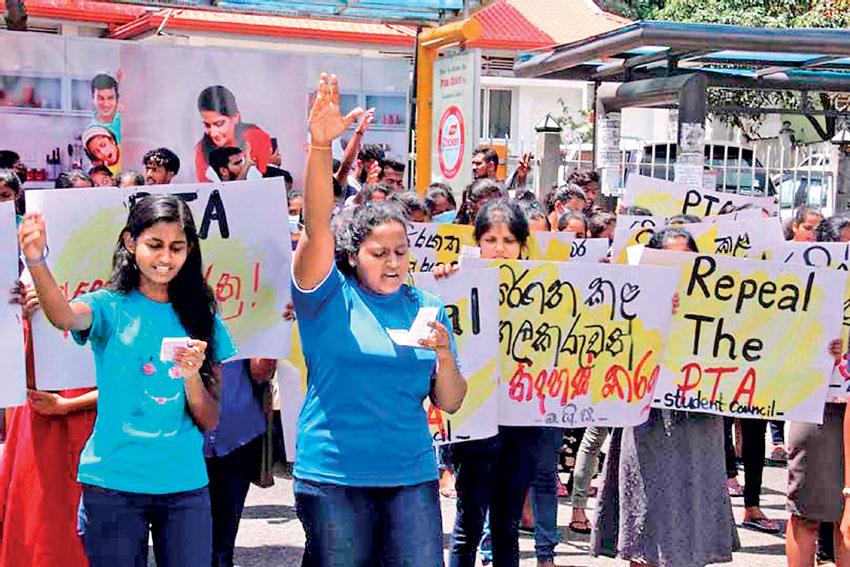
Even though the Bill seeks to replace the draconian Prevention of Terrorism Act many stakeholders have raised concerns
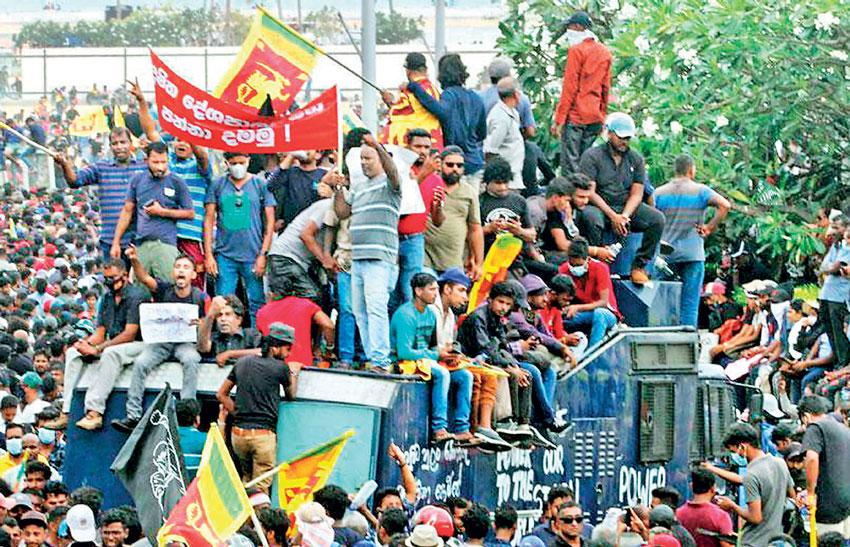
Experts claim that the proposed ATA is government’s response to the aragalaya
This Bill if enacted will bring broad powers to the Office to proscribe organisations, to issue curfew orders to restrict areas and access and many other issues
Someone arrested by the security forces for example can be kept for 24 hours before handing them over to the Police. The individual is therefore open to possible torture, and cruel and inhuman treatment. A magistrate may not have access to a person who is detained in such a manner
The government is expecting more protests from the people. People are facing severe economic hardships and an IMF-inspired economic recovery programme will instigate social discontent and unrest
 The proposed Anti-Terrorism Bill which was gazetted on March 22, 2023, came under much scrutiny by civil society groups, legal entities and local and international human rights organisations. Even though the Bill seeks to replace the draconian Prevention of Terrorism Act with an Anti-Terrorism Act, many stakeholders who observed the draft legislation have pointed out several concerns. Some of these include the definition of terrorism to the broader powers vested upon the Executive and armed forces, the inclusion of the death penalty and possible threats to media and trade unions. However, in response to mounting criticism, the government announced that it would delay tabling the Bill.
The proposed Anti-Terrorism Bill which was gazetted on March 22, 2023, came under much scrutiny by civil society groups, legal entities and local and international human rights organisations. Even though the Bill seeks to replace the draconian Prevention of Terrorism Act with an Anti-Terrorism Act, many stakeholders who observed the draft legislation have pointed out several concerns. Some of these include the definition of terrorism to the broader powers vested upon the Executive and armed forces, the inclusion of the death penalty and possible threats to media and trade unions. However, in response to mounting criticism, the government announced that it would delay tabling the Bill.
Problematic provisions 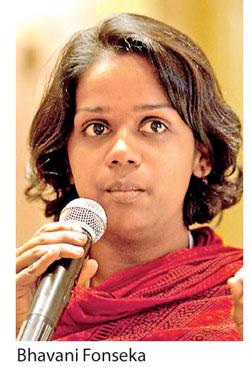
Attorney-at-law and senior researcher at Centre for Policy Alternatives Bhavani Fonseka observes that this proposed Bill is being gazetted in a context where there have been calls to repeal the PTA which has been in existence for 44 years. “The powers vested on the President and the armed forces in terms of arrest and search is also very alarming. This is at a time when there have been calls for the abolition of the Executive president. This Bill if enacted will bring broad powers to the Office to proscribe organisations, to issue curfew orders to restrict areas and access and many other issues. A very initial observation is that this is a very problematic bill and if this is passed as it is, it could bring in very serious issues in terms of implications to fundamental rights to dissent to minority rights and a whole host of things.”
Speaking about the definition of terrorism under the new law she said that the clause in terms of the definition of terrorism is similar to that of the ICCPR. “But there are other very vague and broad definitions that could have an impact on freedom of speech and expression, freedom of movement and all of that. When we have a Penal Code, when we have the ICCPR why are some of these things being brought under a proposed terror law? This is one dimension. The other one is what is the thinking in terms of trying to introduce such a broad law on terrorism and is it not then normalising certain practices such as the role of the military, the broad powers of the Executive, the powers of the DIG to issue detention orders and so forth?” she questioned.
She further questioned as to why such broad powers to search, arrest and detain people should be given to members of the armed forces, coast guard and police. “Therefore someone arrested by the security forces for example can be kept for 24 hours before handing them over to the Police. The individual is therefore open to possible torture, and cruel and inhuman treatment. A magistrate may not have access to a person who is detained in such a manner. The powers of the security forces and others need to be critiqued and challenged because that could lead to abuse.”
Fonseka further said that the powers of the President to issue regulations including on rehabilitation require a lot of attention. “This is at a time when the previous government tried to bring in regulations under the PTA on rehabilitation which several of us had challenged in the Supreme Court. There is a stay order. Last year the government attempted to bring in the Rehabilitation Authority Bill which again we challenged and then the Supreme Court actually suggested changes to ensure it is in compliance with the Constitution. It is in this context the present government is trying to bring this law and bring in rehabilitation when the Supreme Court has looked into the matter and is continually looking into the matter under ongoing cases.”
However, some positive dimensions of the Bill include the fact that confessions have been struck out. “Confessions have been used for decades to extract information; forced coercion, torture has been used,” she added. “There’s also greater oversight by the magistrate and the Human Rights Commission. There are guarantees of access to lawyers etc., So while there are certain positive dimensions, overall the Bill is very problematic. But then again, we need to keep in mind that this proposed law is only gazetted and it hasn’t been tabled in Parliament yet. But now it’s a public document and the citizens need to be extra vigilant, scrutinize and debate this bill because of the problematic provisions in it.”
Govt.’s response to the Aragalaya?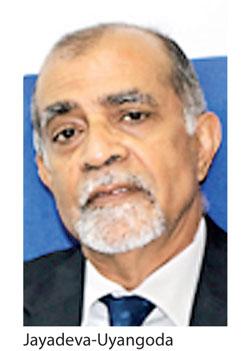
Political scientist and constitutional expert Prof. Jayadeva Uyangoda opined that the proposed law would make Sri Lanka a police state and that it would pose serious threats to the rule of law, democracy and human rights. “This is the government’s response to last year’s Aragalaya. In fact, the government is expecting more protests from the people. People are facing severe economic hardships and an IMF-inspired economic recovery programme will instigate social discontent and unrest. Therefore, the government is trying its best to do that within the rule of law.”
He further said that the Bill could be defeated in two stages, the first being the Supreme Court. “One stage is where citizens could defeat it at the Supreme Court. There is an outright violation of Constitutional provisions. But we can’t predict how the SC will look at it. We hope that the SC will put people’s rights and democracy first. Some clauses are a violation of the Constitution. Some would need a two-thirds majority to pass and some would require a referendum.”
The second stage in which the Bill could be defeated is in Parliament, but Prof. Uyangoda observes that it would be a difficult task with a weak, divided and fragmented Opposition. “The government has ways and means of manipulating the Parliamentary procedures. Hence the future looks bleak,” he underscored while warning that media too is under threat and that journalists will become victims of the law.
The new bill can introduce death penalty
One major concern regarding the Bill is the inclusion of the death penalty. Responding to a query on why the death penalty needs to be included in a new law when it’s already included in the Penal Code, President’s Counsel Tirantha Walaliyadde said that the original PTA did not contain provisions for death sentences even for causing murder; instead, it provided liability for life imprisonment. “The Penal Code is a different Act quite distinct from the Anti-terrorism Bill. The charges have to be brought under either the Penal Code or the ATA. If charges are levelled under the Penal Code then the sphere of evidence that will be admissible is limited and it will be difficult to bring home a conviction. The consequences of a conviction under the ATA are far-reaching and more deterrent than the Penal Code and include forfeiture of property.”
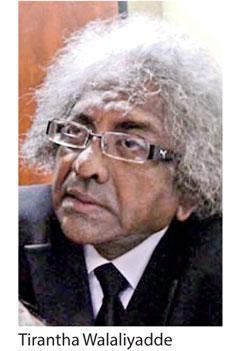 “I have noted various international Human Rights Organizations make preposterous remarks to the effect that the death sentence is against the spirit of terrorism and its values and purposes or that it undermines human and fundamental rights etc. If these arguments were correct then that man who is convicted for the murder of another man over a land dispute in terms of the Penal Code deserves to be hung whereas the terrorist who is convicted in terms of the ATA for the murders of innocent men women, and children, by the hundreds in one blast, does not. Oh, well!”
“I have noted various international Human Rights Organizations make preposterous remarks to the effect that the death sentence is against the spirit of terrorism and its values and purposes or that it undermines human and fundamental rights etc. If these arguments were correct then that man who is convicted for the murder of another man over a land dispute in terms of the Penal Code deserves to be hung whereas the terrorist who is convicted in terms of the ATA for the murders of innocent men women, and children, by the hundreds in one blast, does not. Oh, well!”
He further said that this Bill is a sorry excuse for an anti-terrorist law. “It is in the main terrorist oriented, in that it gives the suspected terrorist a wealth of rights against the law enforcement system: he has access to the HRCSL at his whim, the Human Rights Commission (HRC) has the absolute right to storm the places of detention without prior notice to the relevant authorities, the Magistrate has the right of access and inspection of the suspects’ holding place, for instance, the UNHCR has the right to make inquiries about the suspect’s well-being, the suspect cannot be held incommunicado- which will greatly hamper investigations- it must be remembered that the investigations are levelled against a person who is suspected of having committed mass murder, destroyed public property, has engaged in money laundering for the purposes of terrorism, has conspired to overthrow the government through terrorism and so on and so forth. The suspect arrested in terms of the General law does not enjoy these privileges as a matter of right. Under the circumstances, it may be said that it is far more comfortable for a person to be arrested under the ATA than under the general law.”
Mr.Walaliyadde denied claims about threats to media freedom under the proposed law. “The press has nothing to fear unless their reports fall within the intentions given in Section 3. These provisions are justified because I do not think that any self-respecting democrat would permit freedom of speech and freedom of the press to engage or indulge in the instigation of terrorist activity.”
Responding to threats to trade union activities, he said that it does not affect the Trade Unions in any way so long as they confine their activities to legitimate trade union activity. “The issue has been raised by the TU’s as to who will decide the legitimacy of the activity; in terms of the ATA, the Magistrate’s Court will decide; so, the question of arbitrary detention does not arise,” he said while adding that apart from some rough edges that need to be streamlined and adjusted, on the whole, the ATA does cater to a crying need of the times.
Criticisms and allegations are baseless: Justice Minister
On Wednesday (April 5) the Bar Association of Sri Lanka issued a statement which said that it observes that the proposed Bill has been gazetted without adequate consultations with relevant stakeholders including the BASL. The apex legal body further announced that it would not hesitate to challenge any bill that would deem to undermine the rule of law and the liberty of citizens in the country.
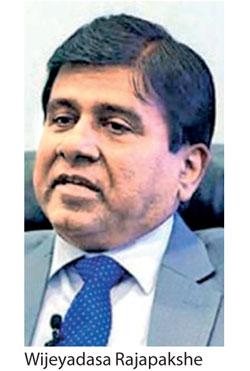 In response to mounting opposition, Justice Minister Dr. Wijeyadasa Rajapakshe announced on Thursday that the government has decided to delay the tabling of the proposed Bill towards the end of April or first week of May. When asked if concerns raised by various stakeholders will be addressed prior to tabling the Bill in Parliament, Dr. Rajapakshe responded in the affirmative while saying that all concerns have been duly addressed. Responding to a query on whether the proposed law is the government’s response to the aragalaya, he said that nobody knew about an ‘Aragalaya’ when the Counter Terrorism Bill was being drafted in 2015. “Then in 2018 it was brought to Parliament and the cabinet approved it thereafter. A special committee too was appointed in this regard.”
In response to mounting opposition, Justice Minister Dr. Wijeyadasa Rajapakshe announced on Thursday that the government has decided to delay the tabling of the proposed Bill towards the end of April or first week of May. When asked if concerns raised by various stakeholders will be addressed prior to tabling the Bill in Parliament, Dr. Rajapakshe responded in the affirmative while saying that all concerns have been duly addressed. Responding to a query on whether the proposed law is the government’s response to the aragalaya, he said that nobody knew about an ‘Aragalaya’ when the Counter Terrorism Bill was being drafted in 2015. “Then in 2018 it was brought to Parliament and the cabinet approved it thereafter. A special committee too was appointed in this regard.”
Speaking about the inclusion of the death penalty Dr. Rajapakshe said that older terms have been included in the new bill but that the Supreme Court had upheld that it was Constitutional. “Appellate Court Judge Janak De Silva recommended that the existing PTA should be made stringent but to also make sure that people’s fundamental rights are not violated. A terrorist cannot have the privilege to breach fundamental rights. The noise is coming from a small community whereas 99% of people want protection by law. Whatever it is, this Bill has nothing to do with the Aragalaya.”
He further said that laws in countries such as the UK, USA and India have no fundamental rights at all. “The man who walked into the Capitol Building for example has been sentenced for 12 years.”
Dr. Rajapakshe reiterated that there’s no threat to the media as the provisions clearly state that media would be taken in for questioning if they intentionally support any kind of terrorist activity as described in the law. “The media doesn’t have to worry. What we have done is we have diluted 90% of powers of the Executive to the magistrate and Police. Fundamental rights jurisdiction is open. If somebody is arrested the HRCSL is allowed to go there and speak to the suspect. Therefore these criticisms and allegations are baseless.”
26 Nov 2024 14 minute ago
26 Nov 2024 16 minute ago
26 Nov 2024 20 minute ago
26 Nov 2024 51 minute ago
26 Nov 2024 3 hours ago